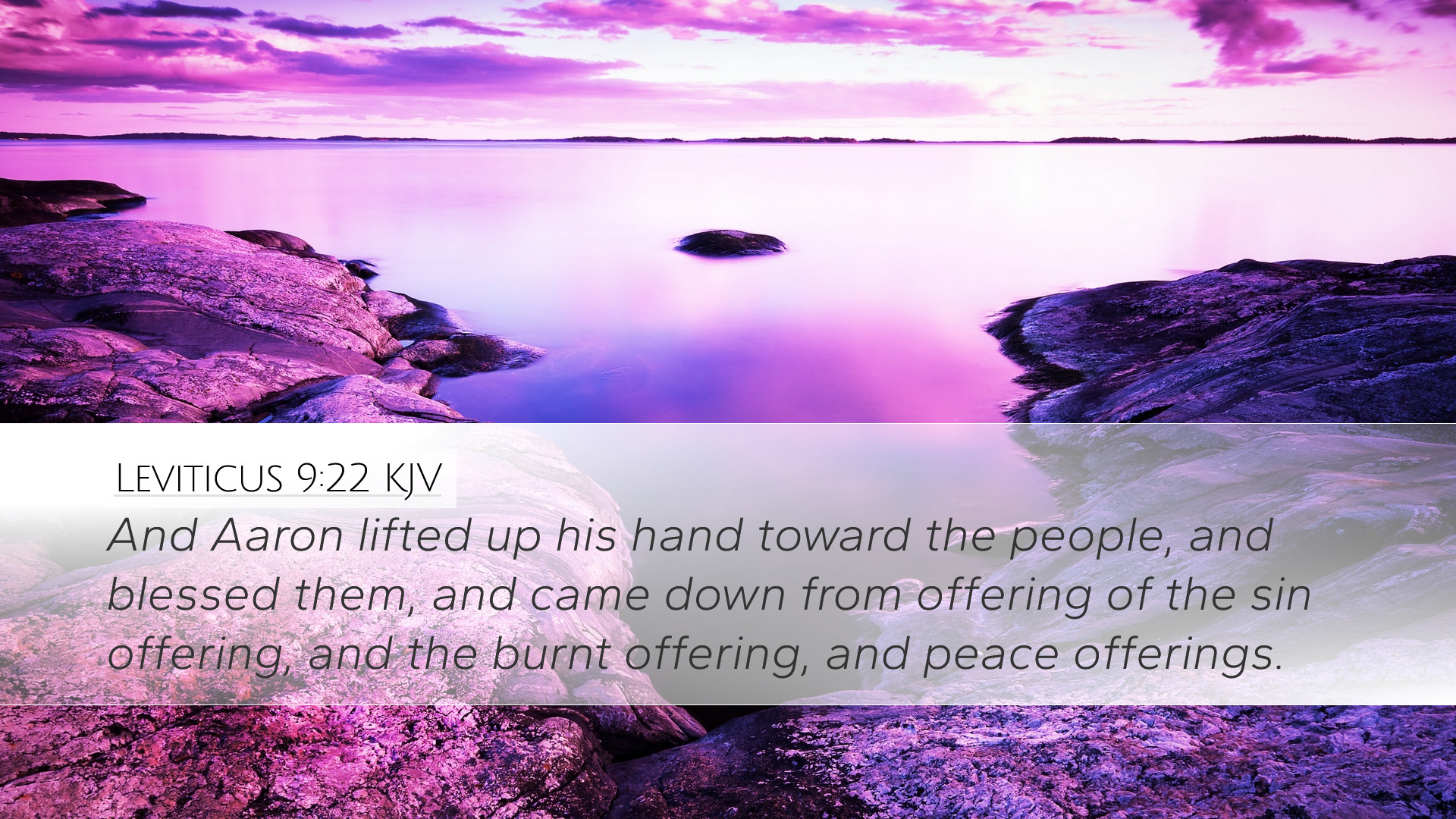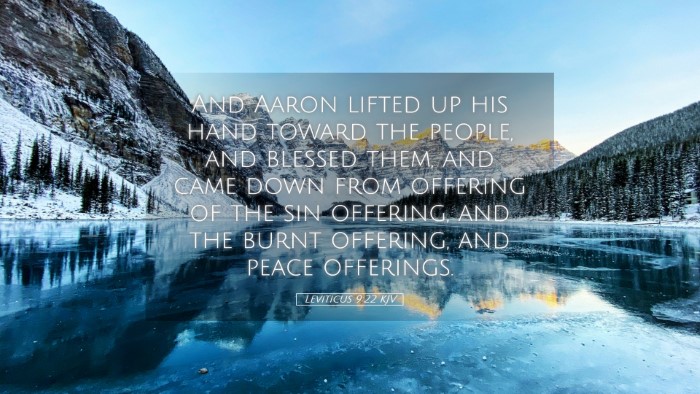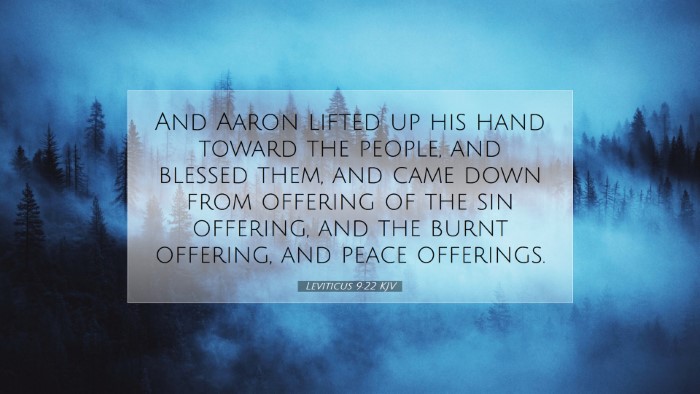Commentary on Leviticus 9:22
Scripture Reference: Leviticus 9:22 (KJV) - "And Aaron lifted up his hand toward the people, and blessed them, and came down from offering of the sin offering, and the burnt offering, and peace offerings."
This verse is pivotal as it captures a significant moment in the Levitical sacrificial system and the priestly ministry established by God among His people. We will draw insights from the works of Matthew Henry, Albert Barnes, and Adam Clarke to provide a detailed commentary suitable for pastors, students, theologians, and Bible scholars.
Overview of Leviticus 9
The ninth chapter of Leviticus marks the consummation of the consecration of Aaron and his sons as priests. Beginning with their preparation and consecration (Leviticus 8), this chapter emphasizes the establishment of proper worship and the communication of God's holiness through ritual practices.
Context and Significance
Matthew Henry emphasizes the importance of this chapter as it showcases the initiation of the sacrificial system which God provided for His people. It highlights the transition from the ordinary to the sacred, indicating how the priestly role functions as a mediator between God and Israel.
Albert Barnes elaborates on the significance of Aaron’s blessings, indicating that such blessings were a vital aspect of the priest’s role, serving to convey God's favor and presence over the people. The act of blessing signifies the relationship between God and Israel—communicating peace, prosperity, and God’s abiding presence.
The Role of Aaron as Priest
Aaron's actions in this verse illustrate the fulfillment of his priestly duties. Adam Clarke notes that the lifting of Aaron's hands toward the people is emblematic of intercession. This was not merely a physical act but also a spiritual one, symbolizing his role in representing the people before God. The gesture reflects acknowledgment of God's covenant blessing—an essential responsibility of a priest.
The Various Offerings
The mention of the sin offering, burnt offering, and peace offerings introduces the types of sacrifices that underpin Israel's approach to holiness. Each offering had a distinct purpose:
- Sin Offering: Addressed unintentional sin, reinforcing the need for atonement and cleansing.
- Burt Offering: Symbolized total dedication to God, indicating the worshiper's commitment and devotion.
- Peace Offering: Manifested thanksgiving and fellowship between God and His people, celebrating the restored relationship.
The Importance of Blessing
The act of blessing serves several essential functions in the life of Israel:
- Spiritual Significance: Blessings communicated divine favor and protection. They affirmed God's promises to His people.
- Community Cohesion: The blessing united the people, fostering a shared sense of identity and divine agreement.
- Continuity of Worship: Each blessing was tied to the rituals of worship, reinforcing the idea that every aspect of life was under God’s jurisdiction.
Application for Modern Believers
In root application, Matthew Henry takes the stance that contemporary believers can find parallels in their lives where they act as conduits of divine blessing through acts of faith, service, and intercession for others. Albert Barnes discusses how the modern church is called to continue this practice through prayer and proclamation, being active participants in the blessing of the world around them.
Conclusion
Leviticus 9:22 serves as a powerful reminder of God's design for worship, the effectiveness of intercessory prayer, and communal identity in Christ. Adam Clarke's commentary helps elucidate that just as Aaron was called to bless the people of Israel, so too are God’s modern-day priests – the church – called to bless the world through their witness, grace, and service. The priestly role remains vital, affirming a continuation of God's redemptive work through humanity.
As pastors, students, theologians, and scholars explore the depths of this verse, it becomes crucial to reflect upon the underlying themes of sacrifice, intercession, and divine blessing, embracing their implications in personal and communal faith journeys.


